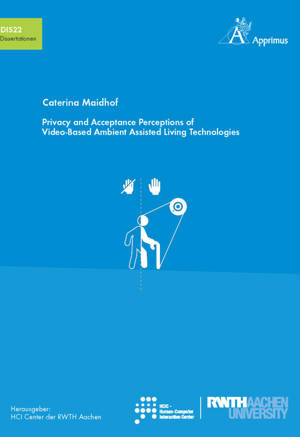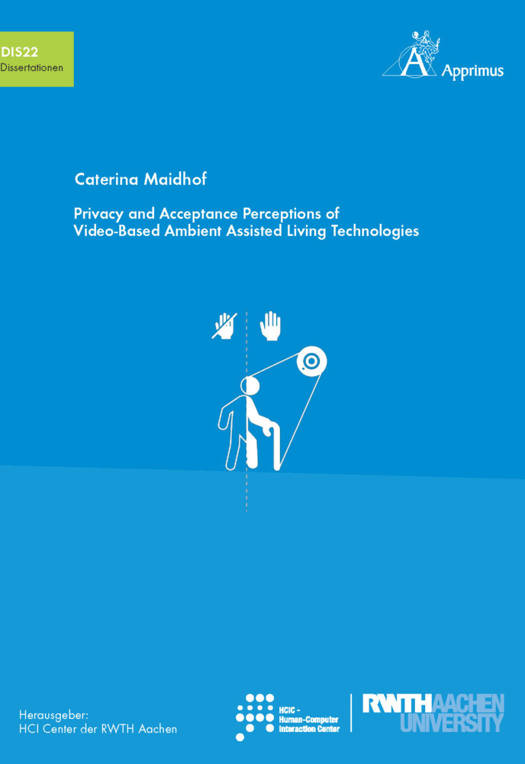
Je cadeautjes zeker op tijd in huis hebben voor de feestdagen? Kom langs in onze winkels en vind het perfecte geschenk!
- Afhalen na 1 uur in een winkel met voorraad
- Gratis thuislevering in België vanaf € 30
- Ruim aanbod met 7 miljoen producten
Je cadeautjes zeker op tijd in huis hebben voor de feestdagen? Kom langs in onze winkels en vind het perfecte geschenk!
- Afhalen na 1 uur in een winkel met voorraad
- Gratis thuislevering in België vanaf € 30
- Ruim aanbod met 7 miljoen producten
Zoeken
Privacy and Acceptance Perceptions of Video-Based Ambient Assisted Living Technologies
Caterina Maidhof
€ 53,45
+ 106 punten
Omschrijving
Cameras as part of AAL technologies could play a significant role in future healthcare and elderly care, addressing challenges of demographic shifts. Visual sensors offer benefits like enhancing independence for older adults and easing caregiver workloads. However, privacy concerns substantially affect acceptance, requiring a deeper understanding of users' needs and perceptions. This work aimed to address gaps by exploring privacy and acceptance factors for video-based AAL systems through a multi-stage empirical approach.The first stage examined privacy perceptions in daily life, highlighting its multi-dimensional nature, including informational and psychological aspects. Privacy concerns varied depending on the entity involved, with personal entities like healthcare providers viewed as less intrusive than impersonal ones such as insurers. Technology-related privacy violations, particularly involving nudity, were seen as more negative than human-related violations, stressing the need for privacy-by-design principles.The second stage investigated acceptance of video-based AAL across different contexts, finding higher acceptance for household activities and lower for intimate ones. Benefits like faster emergency responses and increased safety were most valued, while concerns about surveillance and data misuse emerged as major barriers. Technological factors (e.g., data storage) and user characteristics (e.g., age, technical affinity) influenced acceptance.In the third stage, a privacy-informed acceptance model integrated privacy calculus and technology acceptance theories. Results showed perceived benefits strongly drove acceptance, while privacy concerns had a moderate negative impact. Activity-specific privacy needs shaped preferences for data handling, emphasizing the importance of privacy-utility trade-offs.The final stage simulated decision-making, revealing preferences for less recognizable images to ensure bodily privacy and granting data access to emergency services over relatives. Medium data storage durations were favoured, with local storage slightly preferred. Two user groups emerged with differing preferences but similar overall acceptance, underlining the need for customizable privacy settings.The work offers practical recommendations for designing privacy-enhancing, user-centred video-based AAL technologies, benefiting developers, legal researchers, and healthcare planners to meet technical, legal, user, and societal needs.
Specificaties
Betrokkenen
- Auteur(s):
- Uitgeverij:
Inhoud
- Aantal bladzijden:
- 238
- Taal:
- Engels
- Reeks:
- Reeksnummer:
- nr. 22
Eigenschappen
- Productcode (EAN):
- 9783985552634
- Uitvoering:
- Paperback
- Afmetingen:
- 148 mm x 13 mm
- Gewicht:
- 316 g

Alleen bij Standaard Boekhandel
+ 106 punten op je klantenkaart van Standaard Boekhandel
Beoordelingen
We publiceren alleen reviews die voldoen aan de voorwaarden voor reviews. Bekijk onze voorwaarden voor reviews.









